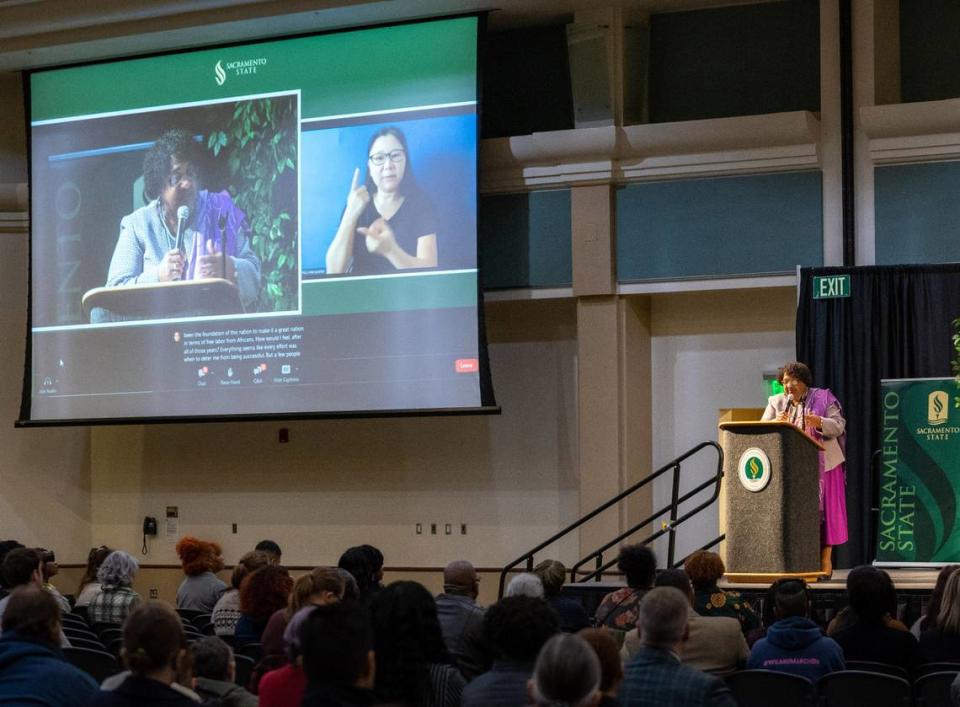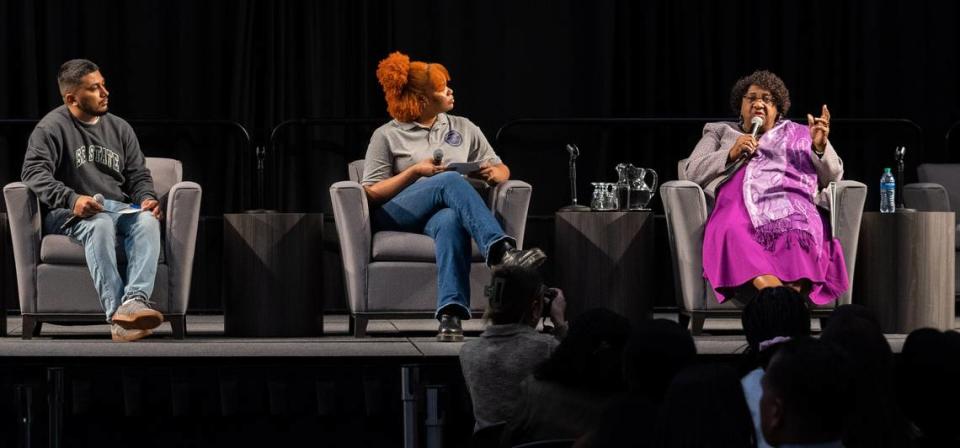California Secretary of State says state can ‘lead the nation’ in Black reparations
- Oops!Something went wrong.Please try again later.
Progress starts with the conversation.
With continued discussion and engagement, California can “lead the nation” in reparations for its Black residents. That was at the core of California Secretary of State Shirley Weber’s efforts to create a reparations task force.
“The process of creating this whole task force … was to create some sense of equity and fairness in the conversation, to create an opportunity for this state to basically lead the nation in what needs to happen with reparations,” she said Tuesday during Sacramento State’s Green & Gold speaker series at the university.
The speech was part of the “Focus on Justice” slate of speeches on campus that are centered around justice as notions of fairness and inclusion, according to university officials.
Weber, a San Diego Democrat who authored the bill creating the state’s reparations committee, said she wanted the panel exploring reparations for African Americans to generate clear and concise language and a path forward. That state-implemented task force was formed to study, analyze, and research the harms of enslavement in California in 2021.
The panel’s work, Weber said, starts by talking through and understanding what reparations could do for African descendants of enslaved people. The initiative is to put together findings that would implement reparations and, after 400 years, repair some of the institutional racial issues that persist in the state.

“It’s not about taking opportunities from other people, it’s about expanding the opportunities,” Weber said about Assembly Bill 3121, which was passed before Weber was appointed to the Secretary of State by Gov. Gavin Newsom. In November, she was elected California’s first Black Secretary of State and only the fifth African American to serve as a state constitutional officer.
“When we talk about the greatness and wealth of California, a lot of that was built on the backs of African Americans in communities around Sacramento State,” Weber said.
Weber explained different types of reparations were distributed to other groups. Weber wanted to ensure a sense of fairness and equity when discussing reparations.
“We decided that it would be important for Californians to talk about California’s true past and true history,” she said. “And to then talk about reparations. And what we need to do as a state to repair the damage that has been done.”
The panel’s first report was released last June, and the final report is expected to be submitted by July 1.
“Hopefully, the reparations would deal with changing our system so that our system becomes fair and have some sense of equity,” she said. “And then you have an investment that is long term and not just a splash in the pan because it seems to be convenient for us to do so.”
“That is going to be critical if we’re going to have a nation that respects all people and values, the contributions of everyone. We need to know more about the people sitting next to us, in front of us, in back of us and around us, and learn to respect their energy and their resources and their culture. That is so critically important.”


